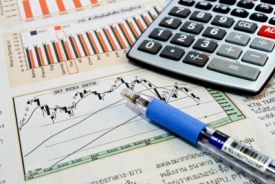Energy, Estonia, EU – Baltic States, Financial Services, Forum, Legislation, Markets and Companies, Taxation
International Internet Magazine. Baltic States news & analytics
Friday, 02.01.2026, 11:20
Estonian minister hails energy commissioner's wish to cut administrative burden
 Print version
Print version |
|---|
"It was positive to hear about the commissioner's aim to reduce the administrative burden and the number of reports between the Commission and the member states, this definitely is a good thing to do. In Estonia we have adopted a similar approach with the zero bureaucracy project, as a result of which the reporting requirements for entrepreneurs will be reduced," Michal said according to spokespeople.
Balticconnector, a gas pipeline to connect Estonia and Finland that's essential for increasing the security of supply for Estonia, was dealt with as the central topic at Friday's meeting. The Estonian minister said that together with the pipeline between Lithuania and Poland it would enable an integrated gas market between Finland, the Baltic countries and Central Europe.
"The European Commission has taken a very serious and positive attitude to ensuring energy security in the region that Estonia is part of and we appreciate this," Michal said.
Sefcovic is on a tour of EU member states as part of the energy union strategy presented in February. In addition to reducing emissions of greenhouse gases, promoting renewable energy and energy security, the objectives of the energy union strategy include increasing energy effectiveness, completing the internal energy market, promoting innovation and competition.
In combination with the establishment of the gas interconnection between Lithuania and Poland, completion of the Balticconnector by 2020 will enable to complete the integration of the gas markets of the Baltic countries and Finland with the single energy market of the EU. Building a gas compressor station at Karksi will enable two-way gas transmission between Estonia and Latvia, which together with Balticconnector will give Finland and Estonia an opportunity to use the underground reservoir in Latvia for the needs of their markets.
Michal and Sefcovic also spoke about a report on the state of the energy union published by the Commission last week and plans for the development of the energy market in the coming few years.
At the VI Annual Energy Conference that followed the meeting of the Commission vice president and the Estonian minister, Michal highlighted interconnections, renewable energy and energy efficiency as means to ensure security of supply and a favorable price for consumers without putting an excessive burden on the environment.








 «The Baltic Course» Is Sold and Stays in Business!
«The Baltic Course» Is Sold and Stays in Business!

